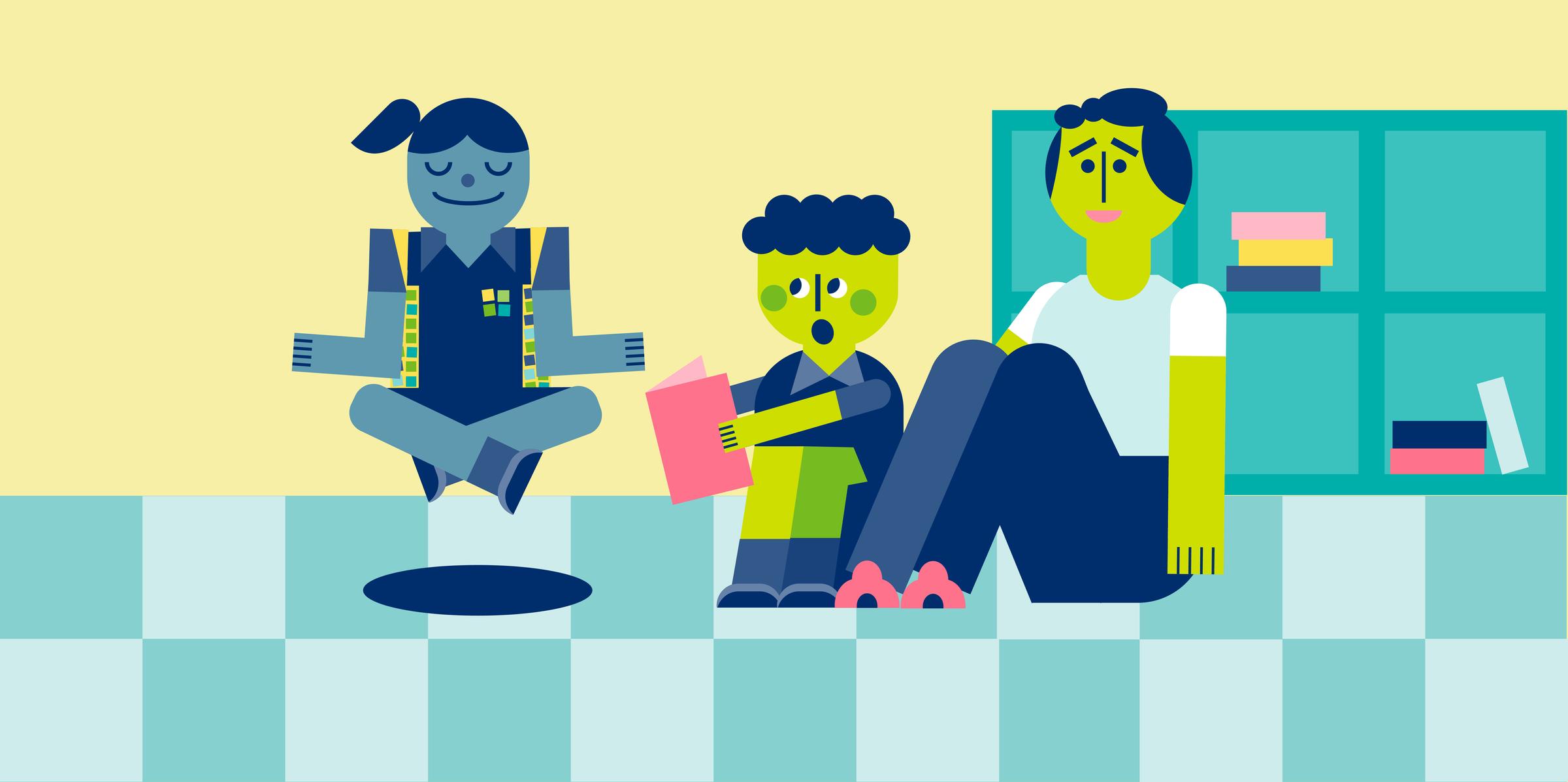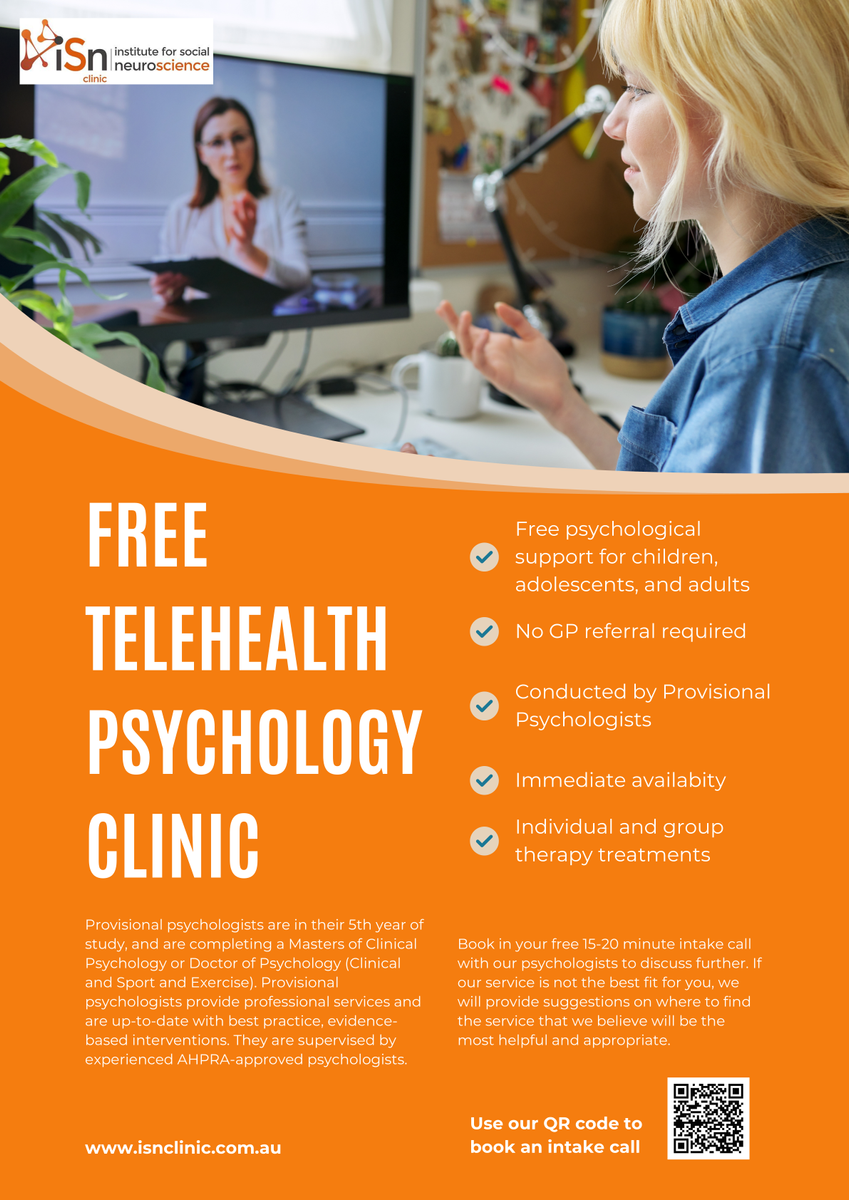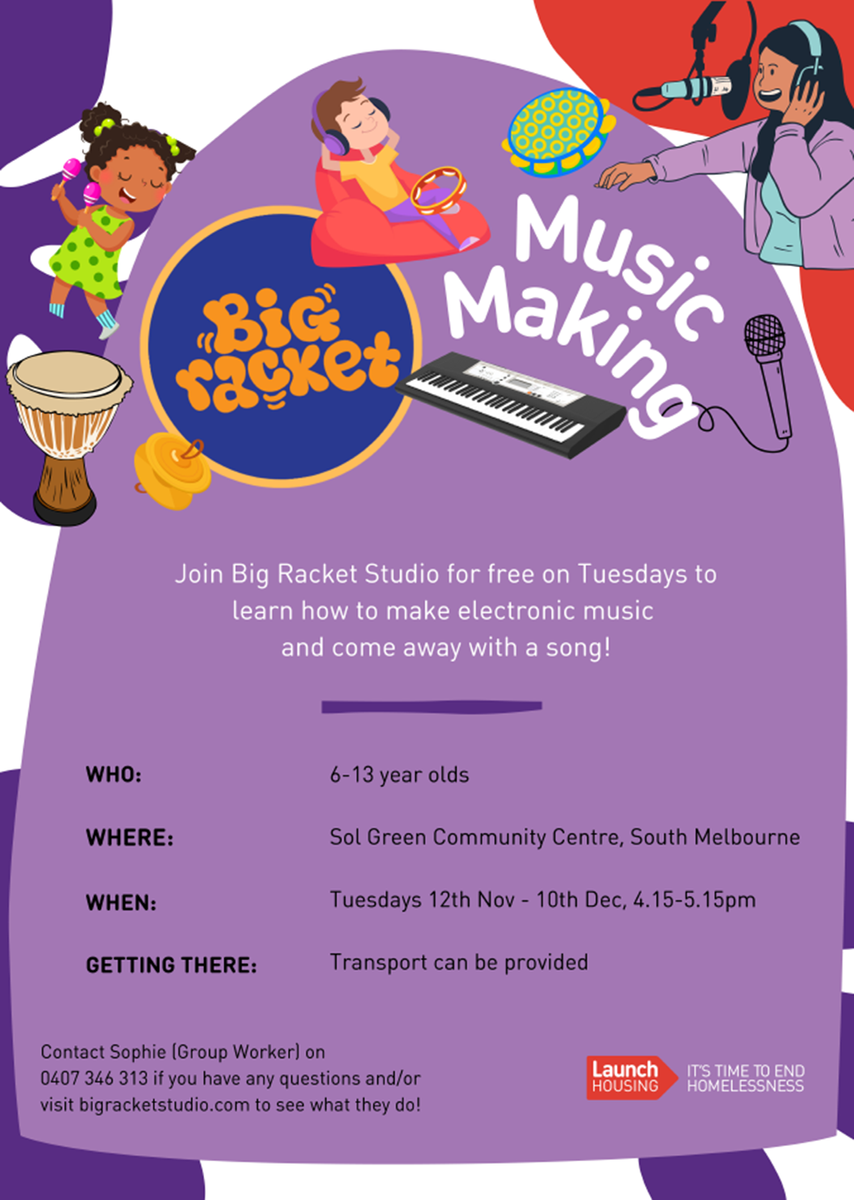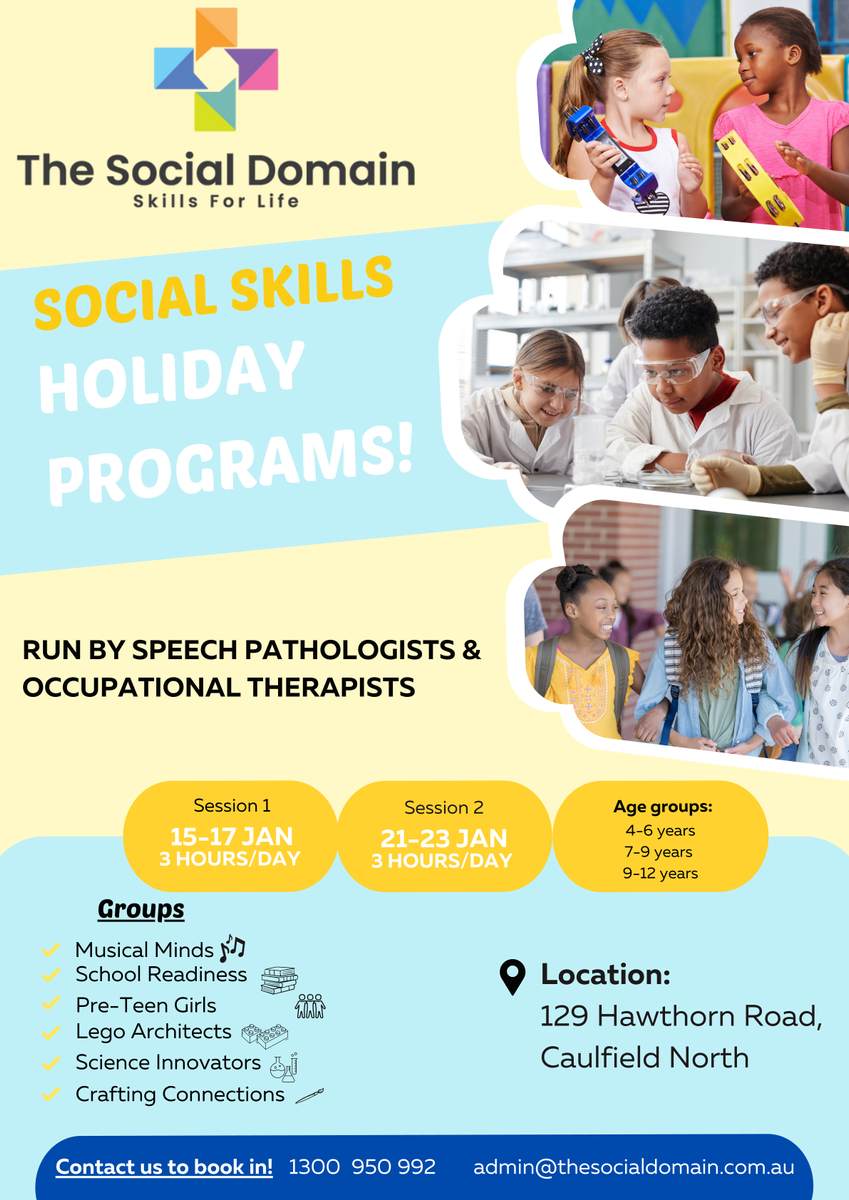The Wellbeing Page
Supporting students to stay happy, safe and connected...

The Wellbeing Page
Supporting students to stay happy, safe and connected...
*Please note ISN are a separate organisation to South Melbourne Primary School.
ISN Clinic (Bundoora, Kew and Moorabbin at the Danny Frawley Centre) are currently offering no-cost therapy and low-cost assessments.
ISN community clinics can offer:
Please note that if you opt to connect with these services, the cost will be on families and not with the School. Please double-check with cost with the provider before going ahead.
The ISN Intake clinician can let you know more accurately what the time frames are for your location of interest.
If you are interested, please use the QR code on the flyer below to book a free 15-20 minute intake call. During this call, the clinician will gather information and match each client up with the appropriate service, assessments and clinician. You will then be put on the waiting list, and booked in with a clinician should you wish to go ahead.
ISN also have a private clinic based at Kew, where 6th year Masters Provisional Psychologists and registered psychologists can also provide assessments and therapy along with General and Clinic Psychologists. Therapy in the private clinic, with a 6th year registered Masters Provisional Psychologist is $60, $30 with a health care card/concession.
Call ISN on +61 3 9008 1616 (Option 2) for further information.


Many parents and carers want to know how to build confidence in children. After all, confidence is a superpower for kids. It helps them enjoy challenges, take reasonable risks, try new things, make new friends and adjust well to school life.
It's not about feeling better than others, but an inner belief that says, "I can do this" even when it seems hard.
Recent research shows high self-esteem is connected to lots of good things, like better social relationships, more success at school and work, and better mental and physical health. It can also buffer against social anxiety and school refusal.
Feeling confident can be challenging, though. As kids grow and develop, their confidence levels will vary, and it’s different for each child. Some will feel ready to take on the world, while others need more support and encouragement.
Parents and carers play a key role in helping children build up their confidence. Here are some tips to help.
HOW TO IMPROVE A CHILD’S SELF-CONFIDENCE: PRAISE THEIR EFFORTS
Kids who receive praise and encouragement for their efforts, not just their achievements, feel good about themselves.
Talk about the things your child does well. When you need to bring up areas where they could improve, start by mentioning something positive first.
For example – You’re really getting the hang of this spelling homework! Let's practise more on these tricky words together, okay?
Give them praise for making progress, no matter the outcome. This can help motivate them to keep trying when things feel difficult.
INSTILLING CONFIDENCE IN CHILDREN: BE A POSITIVE ROLE MODEL
Maybe your child is worried about going to school. Perhaps they find it hard to make friends, or give up when things feel hard.
Children learn a lot just by watching how you handle uncomfortable feelings and challenges.Let them see how you tackle and overcome setbacks.
Talk with them about how a problem can be broken down into smaller parts that can be worked out one at a time.
Share stories about how you overcame a challenge, what you did, and how you felt before and after. Admit your own mistakes and frustrations.
And when things don't go as planned, try to respond calmly.
BUILDING SELF-CONFIDENCE: PROMPT THEM TO SOLVE PROBLEMS
It can be tempting to swoop in and try to fix every problem for children. But they might miss out on a confidence-boosting opportunity.
Instead, try seeing if they can figure something out on their own. You might be surprised what happens when you pause and step back for a moment.
Guide them through problem-solving by asking questions like What have you tried so far? or What do you think might happen if you try this?
MY CHILD GIVES UP EASILY: TAKING THINGS ONE STEP AT A TIME
“I can’t do it!”
“I give up!”
Breaking things down into smaller steps can be helpful.
For example, when they’re feeling overwhelmed by a school project, you can ask questions like, "What's the first thing you need to do?" or "What's the next step after that?"If you have younger children, break down tasks like cleaning up their toys into smaller steps like "Great, let's start by picking up the blocks together!"This can help kids to learn to work through things that seem big and impossible in a more manageable way.
SIGNS OF A CONFIDENT CHILD: DOING THINGS FOR THEMSELVES
Show confidence in your child’s abilities by letting them do things for themselves as soon as they are ready. This helps them learn what they can do, and that they have some control over their world.
Allowing them to take reasonable risks also lets them know you believe in them.
Involving them in decisions can help them to feel like their opinions are valuable. For example, hold a family meeting where everyone can weigh in on choosing an activity for the weekend or decide on a new family rule.
Encourage them to share their thoughts and feelings. Reassure them their ideas are important, even if you don't always agree.
HOW CAN I BOOST MY CHILD’S CONFIDENCE: GOAL SETTING
When children set a goal and work hard to achieve it, they prove to themselves they can do it.
For example, for young children, a goal could be learning how to put on their shoes or socks by themselves. For older kids, it could be saving up for something they want or learning to play an instrument.
Goals should be challenging but realistic. Try to praise the progress made along the way, not just the end results.
HOW TO HELP A CHILD WITH NEGATIVE SELF-TALK
Let your child know that losing, finding things difficult or making a mistake doesn’t mean failure. Growing as a person involves facing new challenges, and mistakes are part of learning. Talking with kids about their strong emotions can help them recognise when they're thinking negatively. If they say things like "I'm terrible at everything," it might be because they're disappointed or didn't get what they wanted.
When we experience setbacks, we get the chance to learn from them. Let them know they'll improve as a result, and remind them these experiences can help them become more confident in handling tough situations.
ENCOURAGING LAUGHTER TO BUILD A CHILD’S SELF-ESTEEM
Laughing is a great way for kids to express their emotions, bond with others and feel good about themselves.
The next time they crack a joke or tell you a funny story, try to give them your full attention and enjoy the moment together.
Sometimes, it can also help to let them see you laugh it off when things go wrong.
When you share laughs and have fun together, you're building a positive and supportive connection where confidence can blossom.
If low self-esteem or confidence has been impacting your child’s day-to-day life across a period time of time, chat with your doctor or seek further advice.
This term Launch Housing* is collaborating with Big Racket Studio to run Big Racket Music Making over the course of 5x weeks.
Big Racket Music Making is a free program for 6-13 year olds to learn how to make electronic music!
In the program, children will have the opportunity to experiment with synthesisers, microphones and an assortment of everyday items to make their own songs with 2x professional musicians and producers 😊. Have a look here to see what they do.
WHERE: Sol Green Community Centre, South Melbourne
WHEN: Tuesdays 12th November - 10th December 4.15-5.15pm
GETTING THERE: Transport can be provided depending on location. Contact Sophie for more details.
*Please note that Launch Housing is a separate organisation to SMPS.



